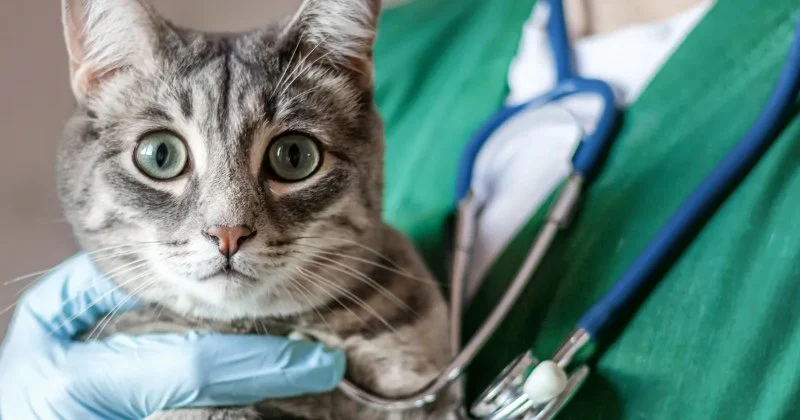
- Why Cat Health is Important
- Top 10 Common Health Issues in Cats
- How to Prevent Health Issues in Cats
- Signs to Watch for in Your Cat
- Omnia Pet Recommendations
Why Cat Health is Important
As a cat owner, ensuring your pet stays healthy is essential for their well-being and happiness. Cats are notorious for hiding their illnesses, which can make it difficult for owners to spot health problems early. Understanding common health issues in cats and how to prevent them can help you provide the best care for your furry friend. Keeping your cat healthy can also extend their lifespan and improve their quality of life, making them happier and more active companions.
Regular veterinary visits, a balanced diet, and proper grooming are key to maintaining your cat’s health. Prevention is always better than treatment, and by staying informed about common health issues, you can act quickly when necessary and provide the best possible care.
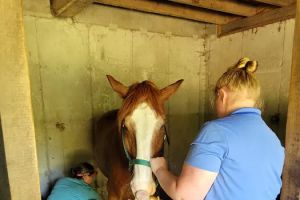
Twin Pines Equine Vet Services
GriswoldSoutheastern Connecticut Planning RegionConnecticut
1 Colonel Brown Rd, Griswold, CT 06351, USA
Top 10 Common Health Issues in Cats
Cats, like any pet, are prone to certain health issues, some of which can become serious if left untreated. Here are the top 10 most common health issues in cats that owners should be aware of:
- 1. Dental Disease: Dental disease is one of the most common health problems in cats, affecting up to 70% of cats over the age of 3. It can lead to pain, tooth loss, and more serious infections. Regular dental checkups and home care, such as brushing your cat’s teeth, can help prevent this issue.
- 2. Fleas and Ticks: Fleas and ticks are not only uncomfortable for your cat but can also lead to more severe conditions such as skin infections, anemia, and tapeworms. Regular flea and tick prevention treatments are essential, especially for cats that go outdoors.
- 3. Obesity: Overweight cats are at risk for a number of health problems, including diabetes, heart disease, and joint problems. A balanced diet, portion control, and regular exercise can help keep your cat at a healthy weight.
- 4. Urinary Tract Infections (UTIs): UTIs are common in cats and can cause symptoms like frequent urination, straining, and blood in the urine. If left untreated, UTIs can lead to kidney damage or urinary blockages. Adequate hydration and a proper diet can help prevent these infections.
- 5. Hairballs: While hairballs are a normal part of a cat’s grooming routine, excessive hairballs can indicate an underlying issue such as digestive problems or excessive shedding. Regular grooming and a high-fiber diet can help reduce hairball formation.
- 6. Allergies: Cats can develop allergies to food, environmental factors like pollen or dust, and even flea bites. Symptoms can include itchy skin, coughing, sneezing, and watery eyes. Identifying the allergen and eliminating exposure is the best way to manage these conditions.
- 7. Hyperthyroidism: Hyperthyroidism is a common endocrine disorder in older cats, often resulting in weight loss, increased appetite, and hyperactivity. Regular veterinary checkups and blood tests are essential for early detection.
- 8. Kidney Disease: Kidney disease is another condition that affects many older cats. Symptoms include increased thirst, weight loss, and lethargy. Early diagnosis and proper management, including a special diet, can help slow the progression of the disease.
- 9. Respiratory Issues: Cats are prone to respiratory infections, especially those that are not vaccinated. Symptoms include coughing, sneezing, nasal discharge, and difficulty breathing. Keeping your cat indoors and up-to-date on vaccinations can reduce the risk of respiratory infections.
- 10. Cancer: Cancer can affect any part of a cat’s body, and it can be difficult to spot in the early stages. Regular vet visits and paying attention to any unusual lumps, weight changes, or behavior can help with early detection and treatment.
How to Prevent Health Issues in Cats
Preventing health problems in cats is all about maintaining a proactive approach to their care. By focusing on regular preventive measures and early intervention, you can keep your cat healthy and minimize the risk of many common health issues.
- Regular Vet Check-ups: Schedule regular veterinary check-ups for your cat, especially as they age. Regular exams can help catch potential problems early and ensure they are up-to-date on vaccinations and preventative treatments.
- Proper Nutrition: Feed your cat a balanced, high-quality diet appropriate for their age, size, and activity level. Consult your vet for advice on the best food for your cat’s specific needs, especially if they have any health concerns.
- Hydration: Encourage your cat to drink plenty of water by providing fresh water daily and offering wet food. Proper hydration helps prevent urinary tract issues and promotes overall health.
- Exercise and Mental Stimulation: Ensure your cat gets enough physical activity and mental stimulation through toys, playtime, and enrichment activities. This helps prevent obesity, anxiety, and boredom-related behaviors.
- Grooming: Regular grooming is essential for maintaining a healthy coat and preventing hairballs. Brushing your cat’s fur regularly also helps prevent matting and removes dirt and debris.
- Parasite Control: Use flea and tick preventatives to protect your cat from parasites. This is especially important for outdoor cats, but indoor cats can also be at risk from fleas or ticks brought in from outside.
Signs to Watch for in Your Cat
Being aware of any changes in your cat’s behavior or physical condition is key to spotting potential health issues early. Here are some signs that should prompt a visit to the vet:
- Change in Appetite: If your cat suddenly eats much more or much less than usual, it could be a sign of a health issue.
- Behavioral Changes: If your cat becomes more lethargic, irritable, or hides more often, it could indicate pain or illness.
- Frequent Vomiting or Diarrhea: Occasional hairballs are normal, but frequent vomiting or diarrhea could be a sign of a digestive issue or infection.
- Weight Loss or Gain: Unexplained weight changes, especially sudden weight loss, could indicate a metabolic issue or disease.
Omnia Pet Recommendations
At Omnia Pet, we offer a wide range of products designed to help maintain your cat’s health and well-being. From high-quality food to health supplements and toys, we have everything you need to keep your pet happy and healthy. Explore our recommendations for the best products to prevent common health issues in cats and ensure your furry friend stays in top condition.
Visit Omnia Pet for expert advice and product recommendations tailored to your cat’s specific needs. Whether it’s for general health maintenance or managing a specific condition, we’re here to support you and your pet every step of the way.

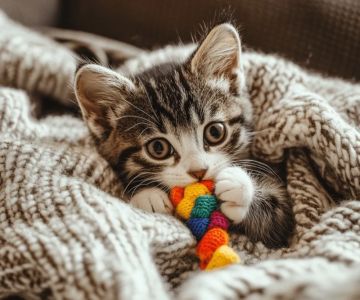



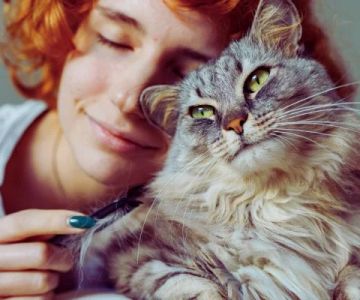
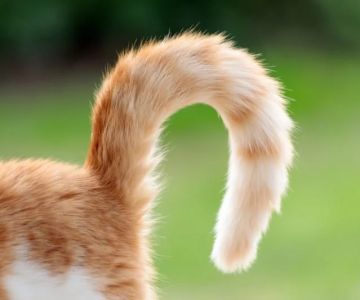
 Caruso Jill DVM3.0 (7 reviews)
Caruso Jill DVM3.0 (7 reviews) Pawcatuck Veterinary Clinic4.0 (126 reviews)
Pawcatuck Veterinary Clinic4.0 (126 reviews) Marlboro Village Veterinary Hospital of Marlboro and Aberdeen & The Bark Park Dog Daycare!4.0 (27 reviews)
Marlboro Village Veterinary Hospital of Marlboro and Aberdeen & The Bark Park Dog Daycare!4.0 (27 reviews) Wet Pets4.0 (233 reviews)
Wet Pets4.0 (233 reviews) Marbletown Animal Hospital4.0 (532 reviews)
Marbletown Animal Hospital4.0 (532 reviews) 101 SPAY & NEUTER OF SCOTTSDALE4.0 (9 reviews)
101 SPAY & NEUTER OF SCOTTSDALE4.0 (9 reviews)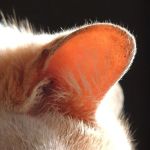 The Science of a Kitten's Hearing Development: Understanding Their Sensory Growth
The Science of a Kitten's Hearing Development: Understanding Their Sensory Growth Understanding Feline Anemia: Causes, Symptoms, and Treatment
Understanding Feline Anemia: Causes, Symptoms, and Treatment A Guide to Canine Cognitive Dysfunction (Doggy Dementia)
A Guide to Canine Cognitive Dysfunction (Doggy Dementia) Why Do Kittens Like to Sleep in Sunbeams? Discover the Benefits of Sunbathing
Why Do Kittens Like to Sleep in Sunbeams? Discover the Benefits of Sunbathing The Science of a Kitten's Night Vision
The Science of a Kitten's Night Vision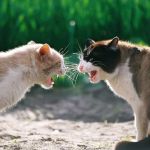 A Guide to Cat Aggression: How to Deal with an Angry Cat
A Guide to Cat Aggression: How to Deal with an Angry Cat